Human Rights Watch plea for information on gay singer missing from Chechnya
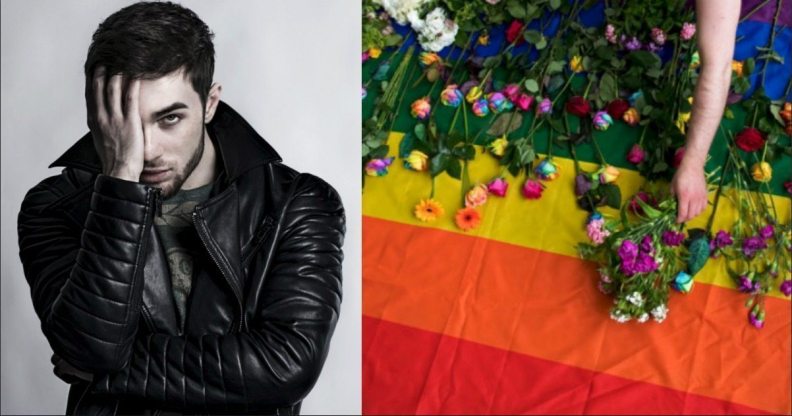
Campaigners are calling for information after a gay singer from Chechnya went missing.
Zelim Bakaev was dragged into a car by a group of security officials in the Chechen capital of Grozny on 8 August.
Bakaev was well-known in his native Chechnya as a singer, and had even posed for photos with the nation’s president, Ramzan Kadyrov.
He is now feared dead after he is thought to have been targeted by Chechnya’s anti-gay purge.
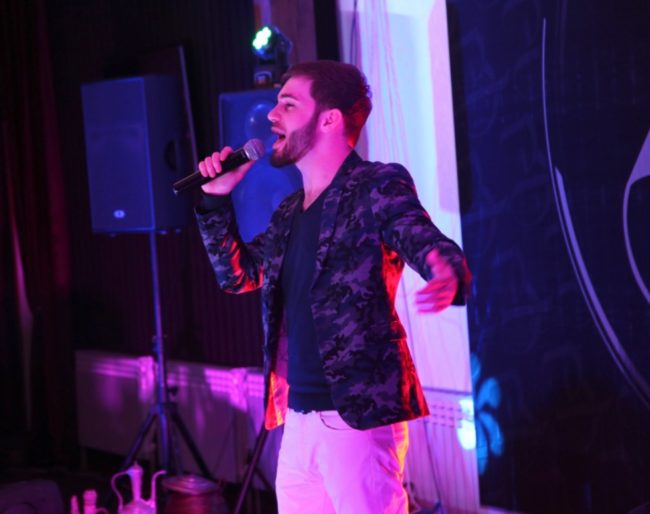
Campaign group Human Rights Watch (HRW) said: “There is little doubt he was targeted because of his sexual orientation.”
Bakaev moved from Chechnya to Moscow in 2012, where had been living for the past five years.
He returned to his home nation this summer to attend his sister’s wedding.
After suddenly disappearing his mother filed a report with Chechnya’s police, but they found “no grounds” for opening a criminal investigation.
She also wrote to Chechen leader, Ramzan Kadyrov, begging him to help find her son.
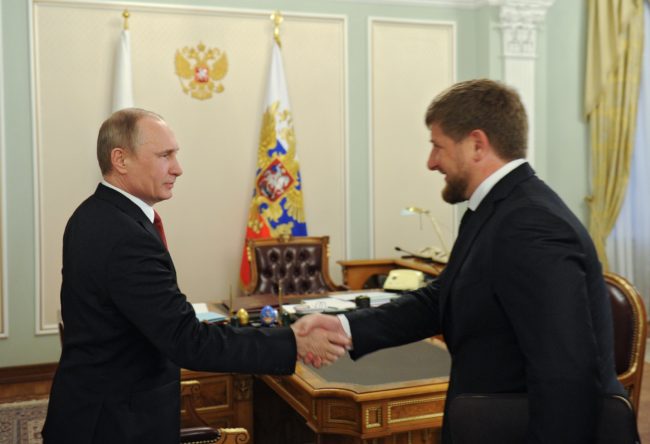
Russia’s President Vladimir Putin (L) shakes hands with Chechnya’s head Ramzan Kadyrov
Since the singer went missing two videos have surfaced on YouTube – suggesting he is now in Germany.
However friends are not convinced the man in the videos is really Bakaev.
HRW said: “Bakaev’s friends told us that he ‘doesn’t look like himself’ in those videos: for a man who takes meticulous care of his appearance, he is ruffled, with a sloppy haircut, and seems to have lost a lot of weight.”
Bakaev’s friends believe he was forced to record the videos by his captors, so that the Chechen authorities can deny his disappearance.
“Moscow should go beyond window dressing, and properly answer questions about Bakaev’s fate and whereabouts,” the organisation says.
“Germany could also help by publicly affirming that if Bakaev is in Germany, that he can safely seek asylum there, and will receive protection from German authorities to contact his family and speak publicly if he wishes.”
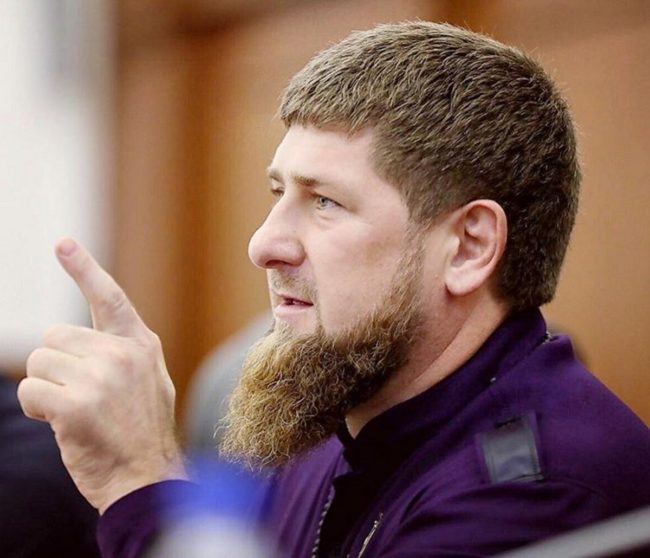
(Instagram)
The news of ‘gay concentration camps’ in the republic of Chechnya first reached the international press in April 2017.
It was reported that gay and bi men had been rounded up in a “purge” and were being abused, tortured and killed in the camps.
Despite international pressure, the report says that the camps are still in operation, and that it is likely dozens of men have been killed.
The Russian LGBT Network has published reports of numerous testimonies from people who have experienced persecution and abuse in Chechnya.
They have been collecting the stories as they work to help people in Chechnya who have been subject to brutal abuse because of their sexuality
Despite the testimonies, Chechen president Ramzan Kadyrov dismissed them as “nonsense” invented by “devils” and claims there are “no gays” in the state.
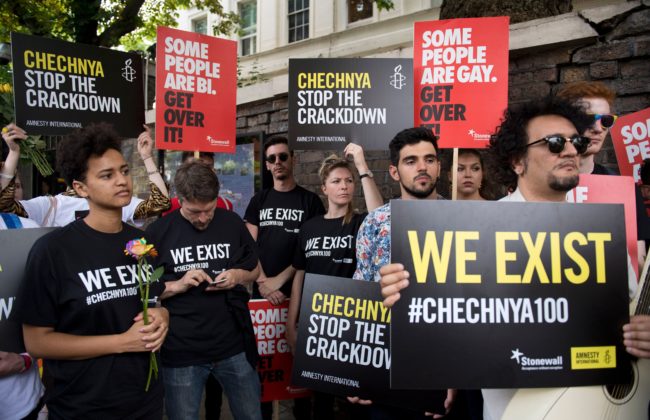
(Photo by JUSTIN TALLIS/AFP/Getty Images)
Before 2017, the LGBT Network said there were a number of cases from people who said their sexuality was used as a reason to abuse them and extort money from them.
One victim said: “They pulled me out of the car. Took off my clothes. My shirt, jeans, even my underwear.
“They themselves started to undress me. The one who was driving filmed all of it; the others just beat me.
“They did this to get money from me.”
But in 2017, these attacks became more focused, with police often using the justification of ‘random drug searches’ to target men they thought might be gay.
One man reported that his car was raided by the police for drugs. They saw he was wearing bracelets and had a bag containing toiletries and a manicure set, which was enough to make him a target.
They asked him: “Are you a faggot? If you are, I’ll shoot you right here.”
The report said the attackers were often driven by an ideology of “purification of the nation.”
One man said: “They openly told us: ‘You were brought here because you are faggots.
“‘You bring shame on our people; you shouldn’t exist. We will catch all of you.
“‘We will fight homosexuality in the Chechen Republic.'”
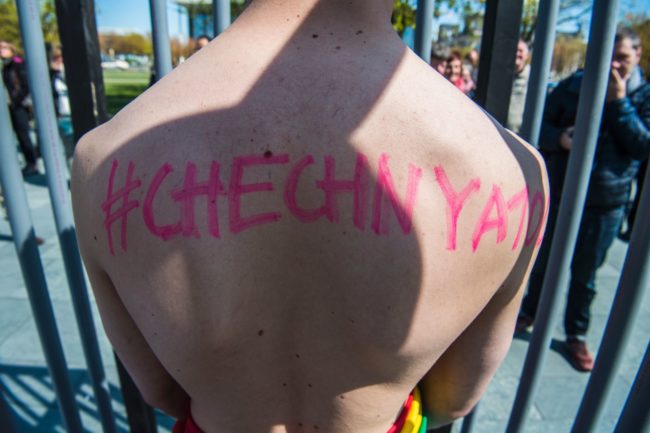
Berliner protesting the gay purge in Chechnya (John MACDOUGALL (Photo credit should read JOHN MACDOUGALL/AFP/Getty Images)
The report says that the first wave of attacks, which they pinpoint as beginning in December 2016, started when a man known as W was arrested and evidence of his homosexuality was found on his phone.
He was forced to give up names of other gay and bi men in Chechnya, who then became hate crime victims.
This began a pattern where the police would use the phones of men they had already caught to contact others. They would trick them into attending a meeting, at which the victims would be detained and incarcerated.
Some of the testimonies are horrific – describing in detail the physical abuse the men faced.
One source said: “They caught a guy, and he allegedly had contacts with terrorists. They brought in a hollow tube and a barbed wire.
“They put a tube inside of him. In his anus. Then, they put the barbed wire inside this tube. Then they took the tube out. And then they were slowly pulling the barbed wire out.
“We were led out into the hallway and chained to the power unit. We just sat on the cold floor all night long. Everyone passing by kicked us, spat on us, and insulted us,” one source said.
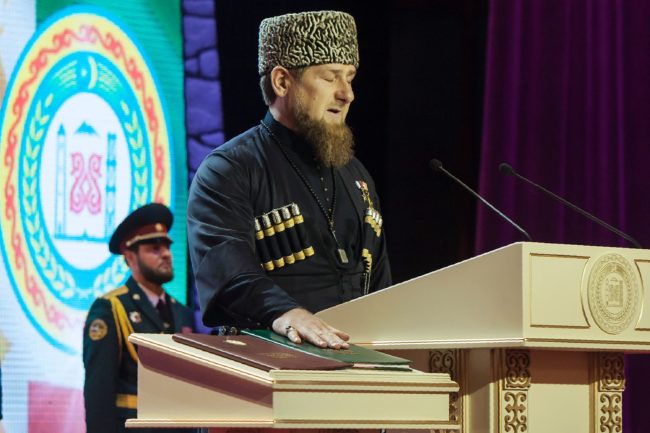
Ramzan Kadyrov takes an oath (AFP / ELENA FITKULINA)
“The militants beat me using pipes, aiming below the waist: the hips and the buttocks. And from time to time, I was tortured with electric current. They used a casket with wires that had tweezers at the end.
“They attached those tweezers to my body. They laughed when I cried.”
Victims had no idea how long the detention would last, with some being held for as long as a month, and at least three people attempting suicide.
When released, the men were told that they could not flee Chechnya as their movements would be monitored.
They were also forced to take part in a “ceremonial shaming,” with families being told that if they murdered their “shameful” family member in an honour killing they would not be prosecuted.

